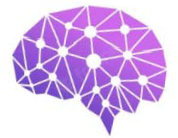
qEEG screening
Service code s9026
Short description
Probably the most basic and the most common use of EEG monitoring is to determine whether a subject with paroxysmal clinical disturbances is having epileptic seizures. It can help identify whether a given episode in question is epileptic or nonepileptic in origin.
There are several illnesses that may produce symptoms similar to those of epileptic seizures. There are events of other physiologic bases such as cardiac arrhythmias causing syncope, episodes caused by cerebrovascular disease, movement disorders, and unusual manifestations of sleep disorders. There are also events of psychiatric origin (often referred to as psychogenic nonepileptic seizures – PNES). Taken together, all of these events are generally referred to as “nonepileptic seizures.” All of these can produce bizarre and unusual movements and behavior with some resemblance to epileptic seizures.
Additionally, it is important to determine the type or types of seizures a person manifest. Characterization of ictal and interictal abnormalities can help to determine seizure types and epilepsy syndromes, in conjunction with other clinical features and family history.
The effectiveness of epilepsy intervention requires a comprehensive understanding of epilepsy neurophysiological mechanisms. Here, qEEG screening can be helpful.
Results
By performing this qEEG screening you will get the information on:
- whether you have a qEEG pattern typical for epilepsy and
- its potential electrophysiologic characteristics and nature: neurogenic, psychogenic, or other, which may help to establish prognosis and treatment.
Notes:
- The results of qEEG analysis are put in context of published scientific studies, the individual’s health history, complaints, symptoms and psychometric and other evaluations (if available).
- Present psychotropic medication use may affect the results.
To place a service order, use the following email:
References
- Cohen RJ, Suter C: Hysterical seizures: suggestion as a provocative EEG test. Ann Neurol 1982; 11:391–395.
- Sam MC, So EL. Significance of epileptiform discharges in patients without epilepsy in the community. Epilepsia 2001; 42: 1273–1278.
- Zenkov L.R. Clinical Electroencephalography (with Elements of Epileptology) М.: МЕDpress-inform 2002, pp. 356.